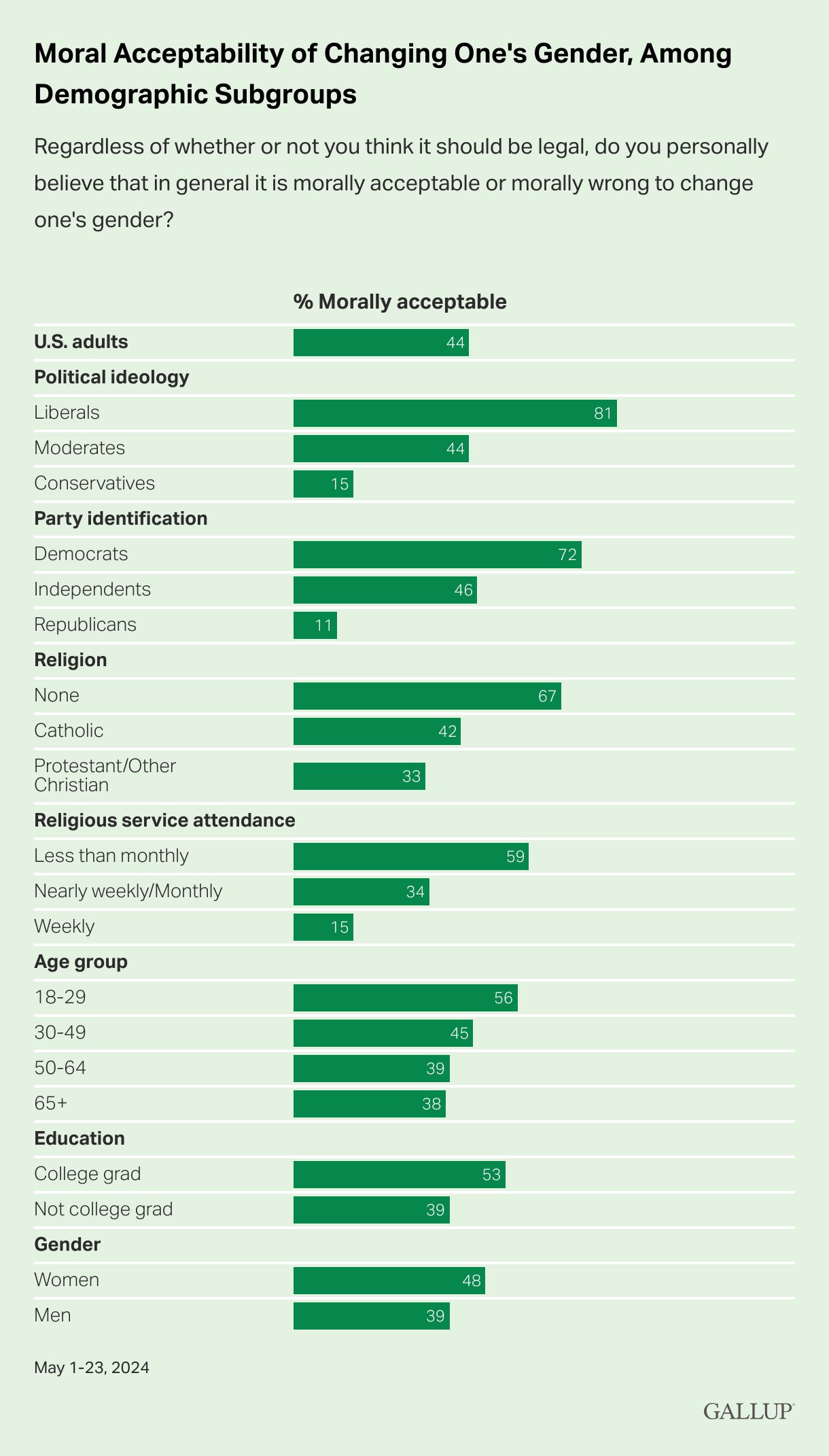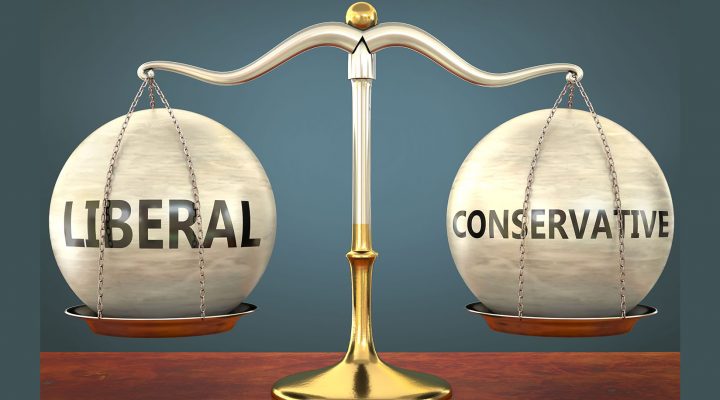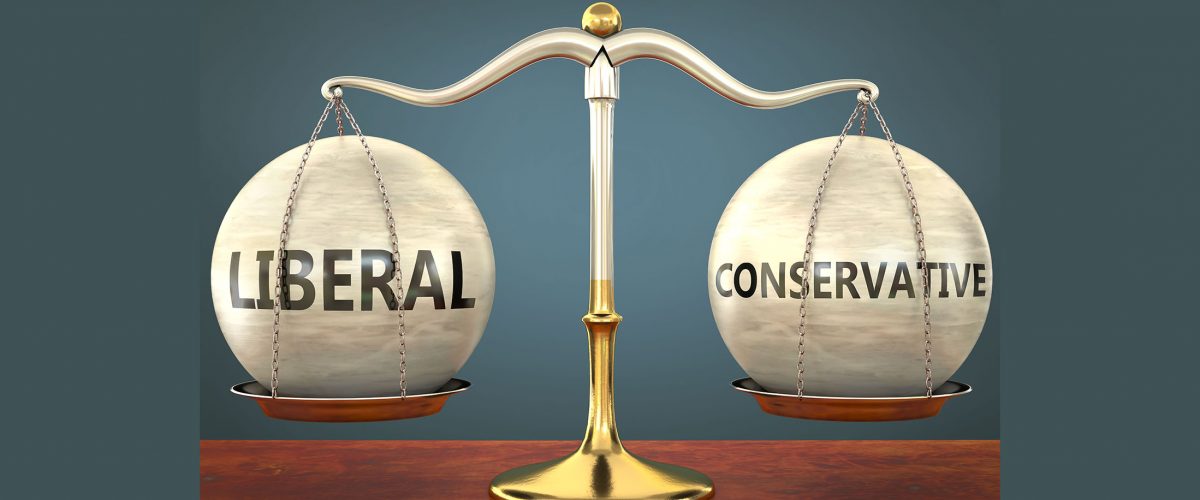Americans continue to grow more liberal in their social views but remain more conservative on economic issues, according to Gallup.
Since 2015 — coincidentally the year the U.S. Supreme Court legalized same-sex marriage after a sea change of public opinion on the matter — Americans have been almost equally divided on saying they have liberal or conservative social views. That was a departure from the previous decade when Americans were about 50% more likely to identify as socially conservative than socially liberal.
At the same time, Americans have remained more conservative on economic issues, although the percentage leaning more liberal has been growing.
“Both trends toward more liberal views than in the past are driven by U.S. Democrats; neither Republicans nor independents have become more liberal in their views over time,” Gallup researchers said. “These trends on social and economic views are separate from the slight long-term increase in Americans’ description of their political views, broadly, as liberal.”
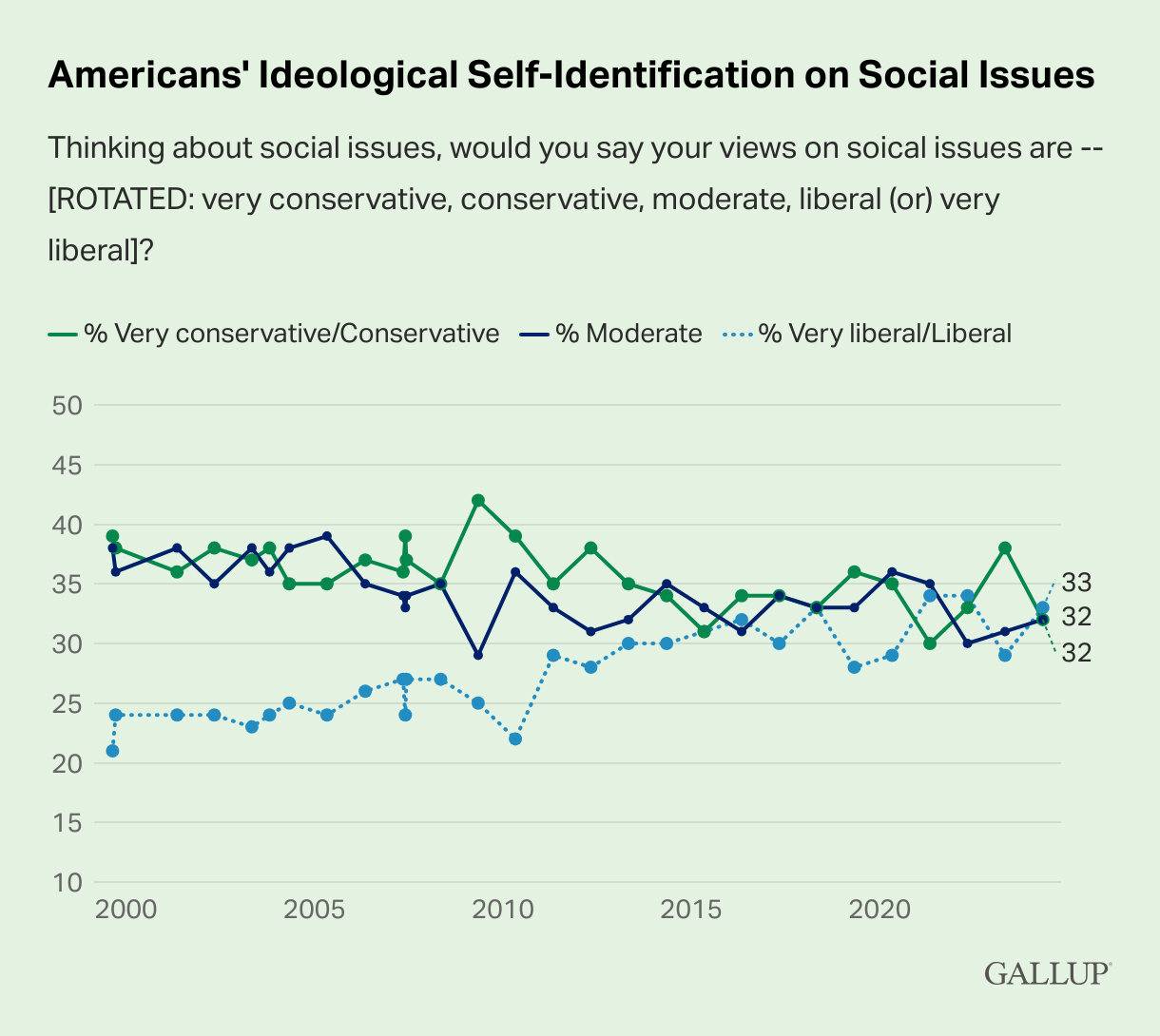
Other key findings from Gallup:
- “Despite some fluctuation over time, liberal identification on social issues has gradually increased, while conservative and moderate identification has each gradually decreased ”
- “Americans are currently most likely to describe their views on economic issues as conservative (39%) or moderate (35%), while about a quarter describe their economic views as liberal (23%).”
- “The 16-percentage-point distance between the conservative and liberal views on economic issues this year matches the smallest gap in the trend, recorded in 2021.”
- “The overall increase in liberal views on both social and economic issues is driven exclusively by Democrats. … Democrats’ liberal identification on social issues has increased by 30 points from 2004 to now. On economic issues, Democrats’ liberal identification has nearly doubled.”
- “Republicans and independents are no more, and no less, likely to identify as liberal on social or economic issues than they were in 2004 or 2014.”
- “Republicans have become more conservative on social and especially economic issues.”
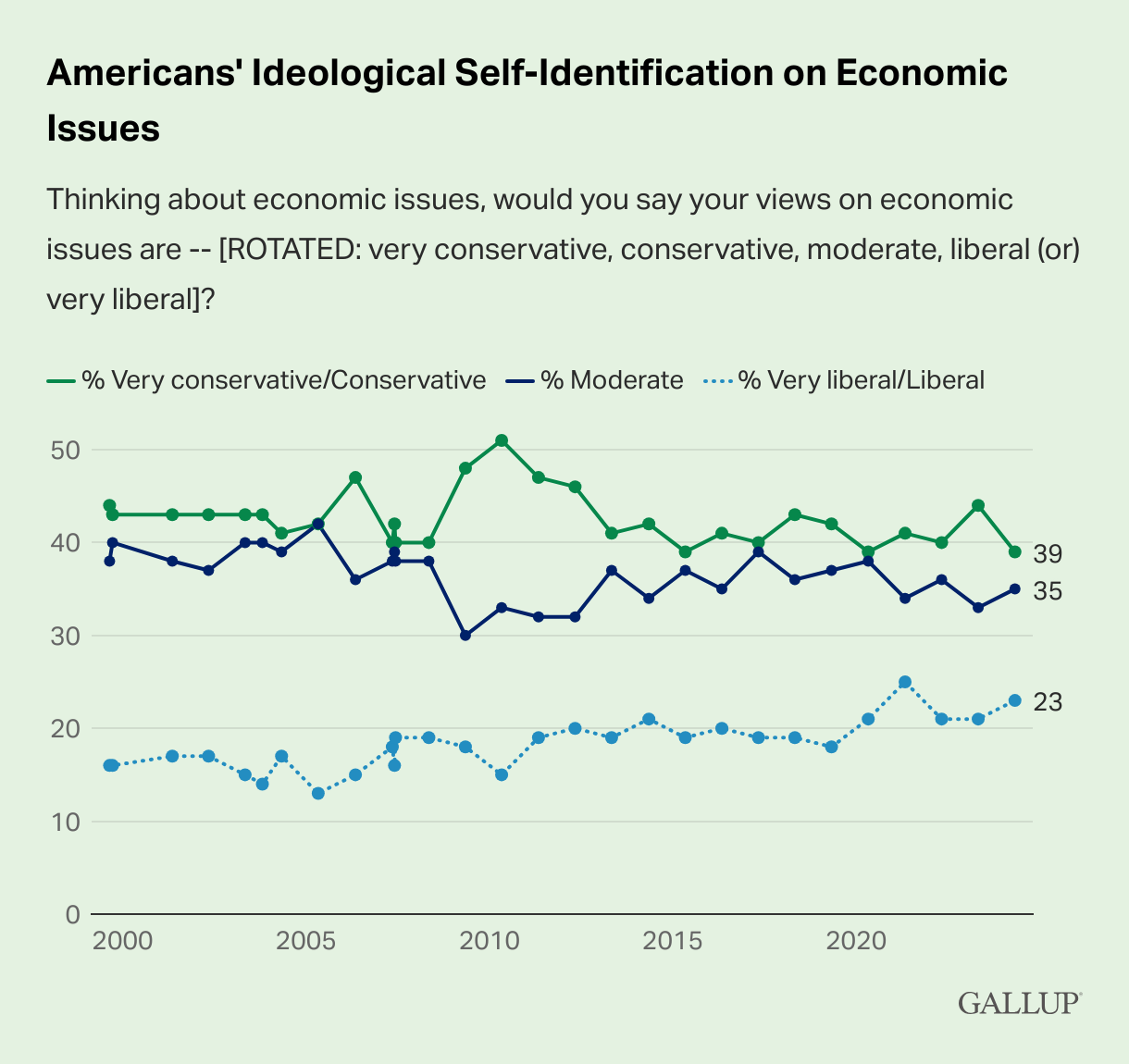
In separate polling results, Gallup found Americans have nuanced opinions on one of the most divisive social issues of the day: Transgender identity.
For the third year in a row, 51% of Americans said they think changing one’s gender is morally wrong, while 44% say it is morally acceptable. However, more than six in 10 Americans oppose laws banning gender-affirming care for minors.
Responding to and acknowledging transgender identity has become a highly politicized issue, as Republican legislators have enacted strict laws in half of U.S. states regulating or banning treatment of transgender minors — aided by religious conservatives who deny transgender identity is real.
Thus, Americans’ views on the morality of changing one’s gender also show major differences along party lines.
Majorities of political liberals (81%), Democrats (72%), those who do not identify with a religion (67%), those who do not attend religious services regularly (59%), young adults ages 18 to 29 (56%) and college graduates (53%) believe changing genders is morally acceptable.
Only 11% of Republicans, 15% of political conservatives and 15% of those who attend church weekly believe changing genders is morally acceptable.
